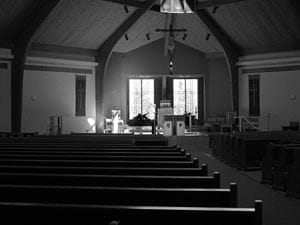You will meet many types of people in the church with different backgrounds, testimonies and personalities. Each of these types of people will stand out for various reasons. It’s imperative that they find the right ministry fit. Identifying where each personality type belongs can really help your church thrive. It can also help you make sense of the person sitting next to you in the pew or on the computer screen. Here are seven common personality types you’ll meet in church.
The introverts

There are many introverts in the church. Introverts can offer some great qualities to the church. They are great thinkers, can be theological as they look outward and inward and can be great small group leaders. Their quiet nature can make them easily approachable. Sometimes, introverts gravitate to larger churches where they can maintain a certain level of anonymity. While they may be attracted to obscurity, they can face challenges in those settings. Sometimes, the small groups aren’t small enough. They don’t feel like they fit in with the outspoken, exuberant, larger church model. Some people feel like, in order to be a good Christian, you need to be outwardly expressive, loud or charismatic, but you don’t have to embody these qualities to be. This is what introverts in the church reveal to us.
The extroverts

Church culture almost seems to be designed for the extroverted personality type. You probably met an extrovert when you first joined your church. They may have been the person who greeted you at the church or led one of the larger ministry teams. There are some things you should know about extroverts in the church. First, just because the extroverts in your church may enjoy talking to people doesn’t mean they are the most comfortable talking about Jesus. While their bubbly, outgoing personalities may make them appear to be the perfect fit for personal evangelism and engaging with others, it doesn’t mean they will always be engaged. It’s good to remind extroverts in the church that witnessing doesn’t have to be a drawn-out, theological discussion. They can share their personal testimony and scripture, which can help them engage in spiritual conversations. It’s also important to remember that extroverts need downtime. This personality type tends to struggle with saying “no,” until they get burnt out. They should find time to rest and reenergize.
The early comers

Early comers make it a point to get to church early. They find value in being at the church ahead of time, and that can be for numerous reasons. You may not realize it, but arriving before the start of the church service can have huge benefits, including being a blessing to others. They generally have the ability to meet new people because they are already in the welcome area or sanctuary. It’s nice to have someone present who can greet people a few minutes before the service begins. Another great thing about early comers is they show and set priorities. They value being at church and coming in early shows that it holds an important place not only in their lives but also in the lives of others.
The latecomers

On the flip side, there are also the latecomers. These are the types who are always late, and people come to expect them to walk in during the readings or prayers. When we’re sincere, constant lateness is a symptom of a bigger problem. They don’t see being on time as that important. You may know someone who is chronically late to church. That may even be you. Ask yourself what makes you late to church. Is it because you wanted to spend a few minutes extra in the bed? Or did you stop on the way to get coffee from Starbucks? Maybe you had an assignment you wanted to finish for church. There are so many excuses that you can come up with. When you think about it, though, we’re simply putting those things ahead of the church.
The judgers

If someone says they have a “strong personality,” they are likely a judger. They are unapologetic about their feelings and will express them. We see these personality types rise in ministry groups, church counsels and boards. They can also be largely misunderstood. Those with the judging personality trail are the most comfortable when they are aware of the course ahead. They like to consider all their options ahead of time before they make a decision. When you choose to talk about your faith with judgers, be sure to plan time to discuss and speak in advance. Also, stay focused and on schedule. Finally, avoid reopening subjects that were already closed. They are not too keen on surprises, which can leave them stressed and frustrated. So, if you have someone in the church with the judger personality type, be sure that the church groups they are in are structured with few switch-ups. They don’t handle the unexpected too well.
The talkers

Every church has talkers. Some will label them bold, and others will label them rude. These are the people that will hold entire conversations during the announcements or when the pastor is giving his sermon. They may even go as far as pulling out their phone when they are in service, which can make them a distraction to others. Then, you also have the loud whisperers who are just as bad as the talkers. They are sure to comment on everything taking place in the church like it’s the gossip hour. The truth is talking during church, whether it’s loud or a quiet whisper, isn’t ok. Outside of the service, they may also be the people who make comments or outbursts during ministry team meetings. It’s essential that you keep these members focused and on the task at hand.
The cheerleaders

It’s great to have cheerleaders in church. They are always cheering members of the church on. You can also feel their presence when the pastor is giving their sermon. They may shout out “preach,” “you’re on fire,” or, “you tell them, pastor.” They are encouraging and let the pastor know that what they are saying is reaching the people. Some people get turned off when the cheerleaders speak in church as they feel they are making unnecessary outbursts, but it can be helpful to feel their presence in the church. Others feel like they brighten up the room and get members amped up in a positive way.
Like all families and friend groups, churches are filled with various personality types. Some of these personality types can seem more appealing or attractive than others. The reality is we need different kinds of people in the church because they offer different qualities. Just because someone doesn’t fit into a particular box doesn’t mean they don’t belong in your church. If you’re challenged by any of these types, take the time to get to know that person better. It may help you see them in a whole new light.
